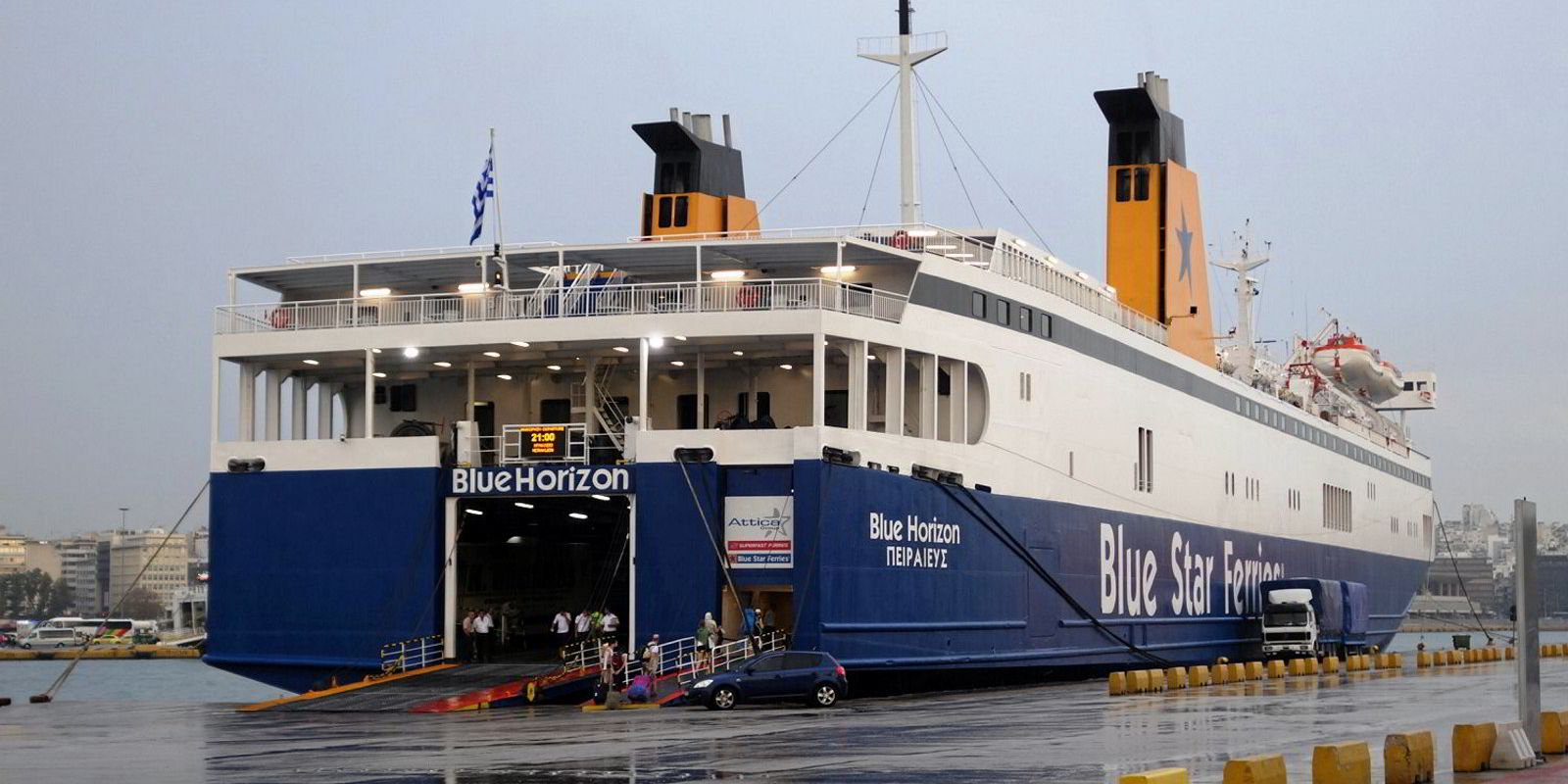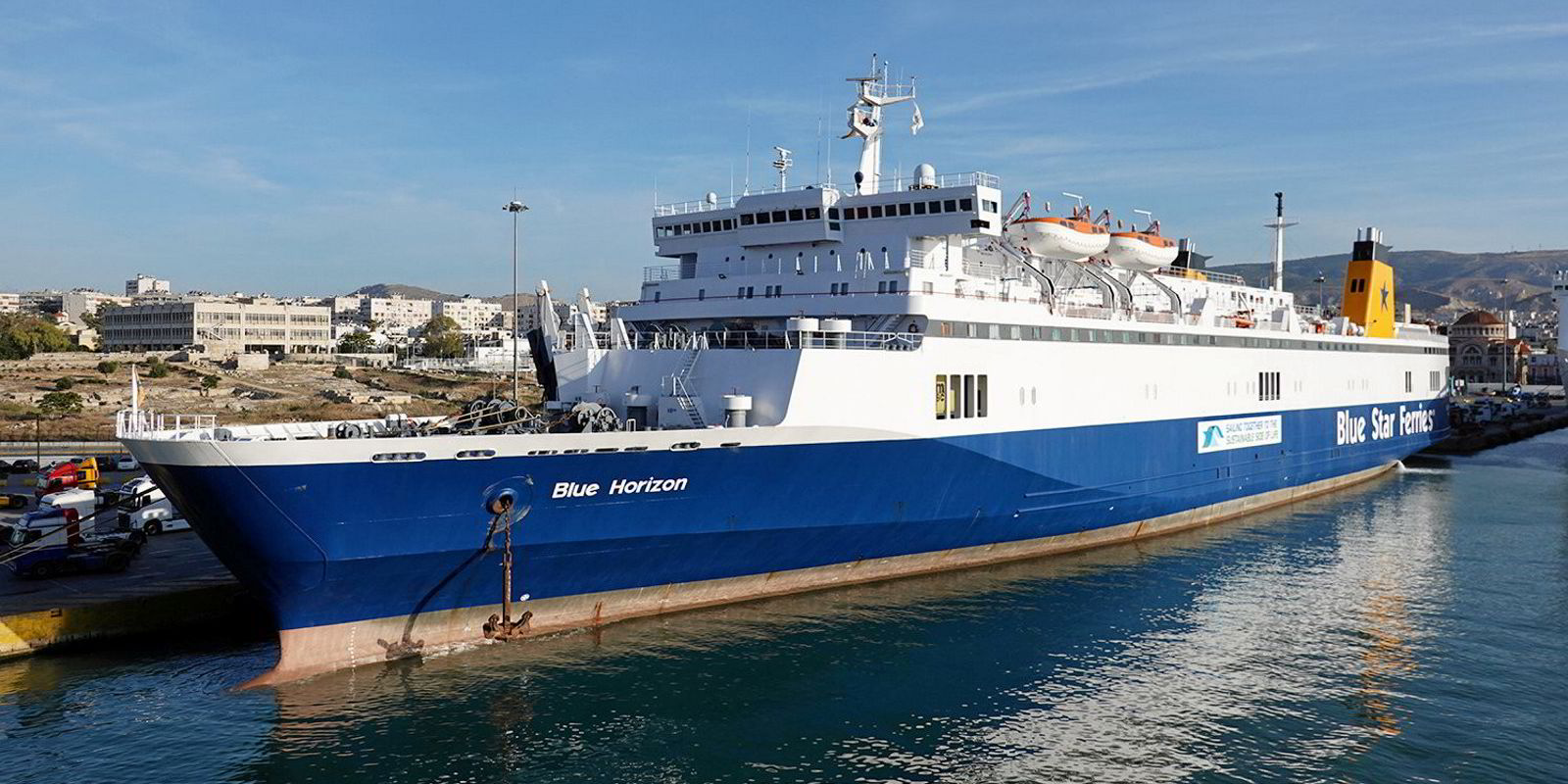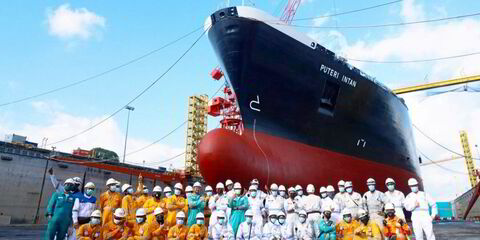Heads continued rolling in Greece a week after the callous behaviour of a ferry crew caused a passenger to drown.
Greek shipping minister Miltiadis Varvitsiotis, who was barely three months into his job, offered his resignation.
“My political record and personal dignity impose on me to not remain in the position,” he said in a Facebook post on Monday.
On 7 September, Varvitsiotis sacked the Piraeus port master and another senior coastguard official for failing their duties in the matter.
Earlier that same day, the chief executive of the Attica Group, employees of which had caused the incident, stepped down.
However, this first wave of sackings and resignations did nothing to calm public opinion still seething by video footage showing Attica seafarers pushing a passenger as he attempted to board the departing 27,200-gt ropax Blue Horizon (built 1987) late at night on 5 September.
As a result of the altercation, 36-year-old Antonis Karyotis — a day labourer from the island of Crete — fell off the ship’s vehicle ramp, hit his head on the quay and drowned.
As he disappeared under the surface of the water, Blue Horizon’s crew looked on as the ship departed without stopping to help.
Karyotis had a ticket to board the ship and his brawl with the crew happened as the Blue Horizon was about to raise its stern ramp.
Despite an obligation to attend all loadings and unloadings at Piraeus harbour, no coastguards were in sight.
Making a bad situation worse
Instead of helping manage the situation on behalf of a government already severely criticised over unprecedented forest fires and forest floods throughout the country, Varvitsiotis inflamed public opinion further.
Ιn a first reaction to the passenger’s death early on 6 September, the 54-year-old politician expressed his sympathy with the Blue Horizon crew members who “found themselves accused with murder” while doing their job.
Four seafarers, including the master of the Blue Horizon, are facing manslaughter charges. The master and one involved crew member were put in pre-trial detention on Monday.
In his resignation post, Varvitsiotis clarified his controversial statement by saying that “in no way” did he wish to equate the victim with the perpetrators, but decided to resign anyway because he did “not accept being lapidated as a human being”.
Varvitsiotis’ decision to step down was “unavoidable and correct”, Greek government spokesman Pavlos Marinakis said.
Greek Prime Minister Kyriakos Mitsotakis named Christos Stylianidis as Varvitsiotis’ replacement.
Cypriot-born Stylianidis, 65, is a former member of the European Commission for humanitarian crises. He also served as Greek climate change and civil protection minister in recent years, with mixed success.
Varvitsiotis will probably not miss his post much. The scion of a conservative political dynasty had served as shipping minister between 2013 and 2015, and his renewed appointment to the post last June was seen as something of a political demotion.
It is not certain if the ministerial change will help calm the waters though. Seafarer and coastguard labour unions have expressed dissatisfaction with the way the government has handled the affair.
While acknowledging the “criminal” behaviour of their colleagues, seafarer union PNO called for a 24-hour ship strike this Wednesday to protest the unfair, “wholesale targeting” of the entire profession and overworking by crews that can lead to “pernicious results”.





